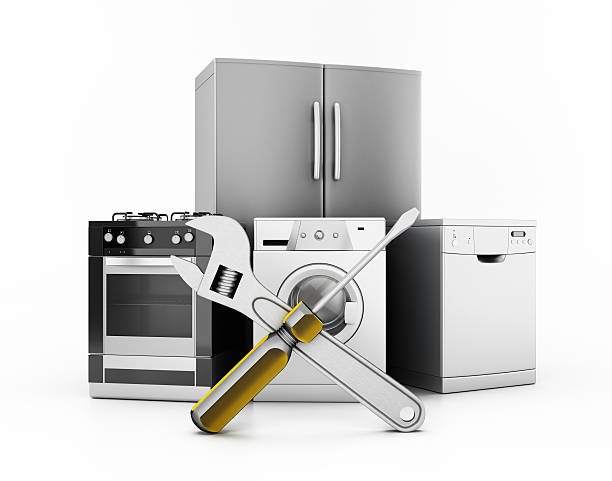Appliances are a must. They make our lives so much easier, making sure we have a comfortable home life. But once they conk out unexpectedly, they can turn our lives into a nightmare. Should you fix an old appliance or replace it with a new one? What are the pros and cons of appliance repair?
Let’s say you’re midway through your laundry, and suddenly the washing machine stops. You try to press the start button, and it just keeps on humming. You attempt basic troubleshooting, but still, it won’t work.
What to do: repair or replace the unit?
Buying a replacement is probably the easiest way to go. You head out to a nearby appliance store and get a new one. Not only is it convenient, but brand new appliances also offer great features and advanced technology. But while this sounds very promising, replacing your appliances requires a hefty investment.
Alternatively, you could have the appliance fixed by a certified technician, and it can be less expensive but may not be the best decision in some cases.
Here we take a look at the pros and cons of repairing an old appliance.
Pros of Repairing Old Appliances
Cheaper
Compared to buying a replacement, appliance repair is usually cheaper. For example, it might just cost you around $100 to fix a leaking washer, while replacing it may cost between $250 to $1,750. But this may not be the case in all old appliances, especially since they are likely not covered by a warranty.
Eco-friendly
Appliance technicians from Hartman’s appliance repair company stressed that repairing broken appliances is less wasteful than buying a new unit. So, instead of going to the dumpster, you can try to revive the old device. While this may seem a simple way to cut your carbon footprint, it can tremendously impact environmental conservation. Appliance production uses a lot of natural resources and energy. So, if you can still hold on to that old unit, do so.
Convenience
Buying some appliances may require minor renovations in your home, especially if the old unit has different dimensions from the new one. For example, if you buy a new gas range, you may have to revise the piping. The same is valid with AC units that need replacing the ducting system. You won’t likely need any renovations if you stick with your old appliance.
Looking for qualified service technicians has also become more accessible now in the age of the Internet. You can browse for a nearby appliance technician to get your unit fixed.
Cons of Repairing Old Appliances
Better performance
A brand new appliance is definitely in better shape and performance than the old unit. It should also look great on your home, as you can choose one that goes with your current home interior.
Best value for money
Fixing an old appliance could make it work for a while, but if there are other worn-out components, it might eventually conk out again. Usually, it is best to buy a replacement unit once the old one has gone past its expected life expectancy. Plus, the new appliance unit could help significantly cut power bills through its energy efficiency.
Delay
Appliance repairs can take three days or even more. You can expect delays for the technician to fix the unit. On some days, the appliance service technician might not be available, and they may schedule the repair at a later date. If you need the machine badly, you will have to pay a special rate. Alternatively, you can consider buying a new appliance that you can use pronto.
Take note, however, that every home appliance has an estimated lifespan. Consumer Reports list the life expectancy of the common appliances, from 9 years for a dishwasher to 13 years for refrigerators. Why is it important to know the average longevity of these machines?
Knowing the maximum useful life of an appliance makes it easier to decide whether to have it fixed or replaced. Once your machine is nearing the end of life, there is an increased chance of malfunction or machine breakdown. It may not also be as energy-efficient as the new unit. Most likely, you’ve already maxed out the value of the appliance — and investing in a replacement is worthwhile.
